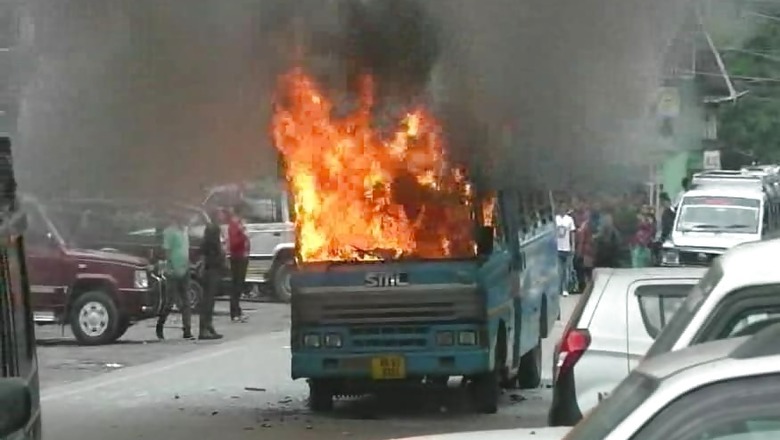
views
New Delhi: Lobbing the ball back into the state government's court, the Centre feels its hands are tied in initiating tripartite talks to end the current impasse in the Darjeeling hills, till the West Bengal government gives it's formal consent to begin any dialogue.
Home Minister Rajnath Singh on Friday spoke to West Bengal Chief Minister Mamata Banerjee over the situation.
West Bengal government has also clarified to the Centre that no executive order, making Bangla as a compulsory language in primary and secondary level, has been issued. Thus, any clarification in this regard is not required.
The Gorkha Janamukti Morcha (GJM) has been insisting on a government order to clear the air on three language controversy, which triggered protests in Nepali-speaking sub-divisions of West Bengal. The anti-Bengla agitation has now metamorphosed into a separate statehood movement, with GJM going back to its pre-2012 position.
Back then, the Morcha temporarily abandoned the demand for a separate state to settle for an autonomous administrative unit.
Earlier this week, Darjeeling MP and Minister of State for Agriculture SS Ahluwalia had written to Home Minister Rajnath Singh, asking the Centre examine the long-standing demands of the Gorkha and other communities from North Bengal. BJP in its 2014 manifesto for General Elections had made a similar reference to the issue.
However, West Bengal Chief Minister has indicated to the Centre that talks can not begin until the violence ends, and the bandh is called off.
Singh spoke to Home Secretary and sought detailed report of the situation as violence escalated on Friday.
An officer of the Indian Reserve Battalion (IRB) was critical after being stabbed with a traditional Nepali kukri on Saturday morning after fresh clashes between security personnel and protesters demanding a separate Gorkhaland.
The GJM said two of its supporters had died in police firing, but there was no immediate confirmation available.




















Comments
0 comment